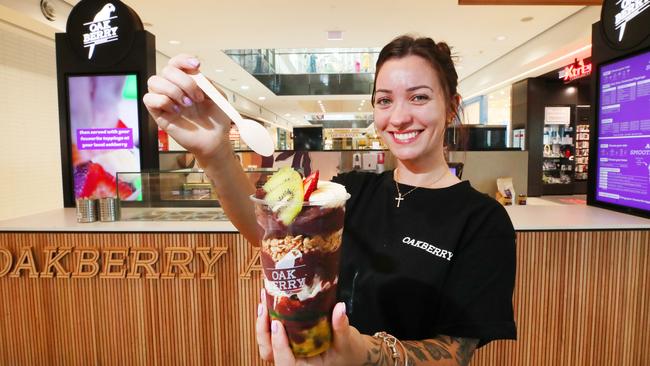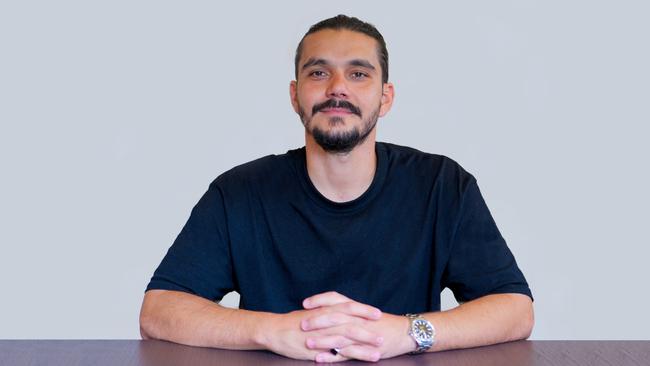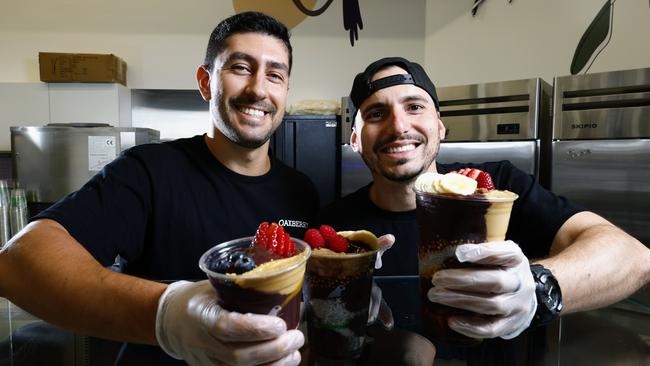Acai juggernaut Oakberry reveals rapid expansion plan for Australia
Acai juggernaut Oakberry will rapidly expand its store network across Australia amid growing demand for healthy fast food, as well as looking to roll out supermarket products.

Acai juggernaut Oakberry wants to have 200 stores across Australia within five years and has plans to nearly double its footprint by the end of next financial year as it rides a wave of demand from younger consumers for healthier fast food alternatives.
The Australian offshoot of the Brazilian business has rapidly grown its footprint since its first store opening at Bondi Beach in 2018, to have about 45 stores dotted across five mainland states.
By the end of June there will about 55 Oakberry stores in Australia offering berry smoothies, bowls, snacks and drinks. The business offers a traditional franchise and an investment model.
The retailer’s chief executive, Renan Fretes Pinto, who brought Oakberry to Australia – its first expansion outside of Brazil – told The Australian that the chain was performing strongly despite cost of living pressures across the community.
He said the business had proved its economics and earnings potential as more Australians became health-conscious and were seeking out alternatives to traditional fast food options such as McDonald’s and KFC.
“There was a gap in the market and we’ve taken advantage of the growing demand for healthy alternatives to fast food. We want to position ourselves as the reference point – when you think of acai, you think of Oakberry,” he said.

Mr Pinto said the acai berry offered a plethora of health benefits and a rich antioxidant content for healthy skin.
He said the Australian market had an appetite for his company’s type of healthy fast food, which was fresh and exciting, especially for younger consumers.
“We’re on a mission, providing a fast food alternative,” he said. “We bring to the market something very unique, it is not diluted and 100 per cent natural organic with all certifications that you could imagine. And the product is a proprietary recipe that no one has.”
“A lot of other player use bad ingredients to make their bowls, and we position ourselves as that premium player with fresh ingredients so people look at us and think that is a true health alternative.”
Mr Pinto said the company had attempted to shelter customers from cost of living and inflationary prices by keeping price rises to a minimum and also by not cutting corners with the product. “Oakberry will keep delivering a premium product because that is what people still want despite cost of living pressures. This comes at a cost and we have absorbed a lot of price hikes to ensure customers can still enjoy our offering.
“I’d prefer having a higher price and delivering a very good product for people than compromising what we’re good at and giving customers a poor offering.”

Oakberry will also bring to Australia its Oak Protein Bars and Oak Matcha Energy Tea, adding to the Vegan Granola, Peanut Butter and Oak Tubs.
Mr Pinto said the diversification would see its products enter Australian supermarkets to expand its market reach into areas that did not have a store.
“The product is slightly different from the shop, so it won’t be direct competition, but the experience will be different. Early feedback has been good, but we want to roll this offering out Australia-wide through top supermarket brands,” he said.
Founded in Brazil in 2016, Oakberry now has more than 600 operating stores worldwide and its Australian offshoot has in the past few months expanded its reach into the neighbouring countries of Indonesia and New Zealand, with stores in both Bali and Auckland.
Mr Pinto said Oakberry had a two-pronged growth strategy that was centred around coastal areas that were considered to be a natural fit for an operation whose key product is acai, but also around commercial sites where people may not currently think of it as a lunch option.
“We are looking to drive growth through a combination of expanding along the coast where people want acai at the beach that is a perfect fit for us – but also throughout more commercial areas where people may not think of acai as a meal.”







To join the conversation, please log in. Don't have an account? Register
Join the conversation, you are commenting as Logout